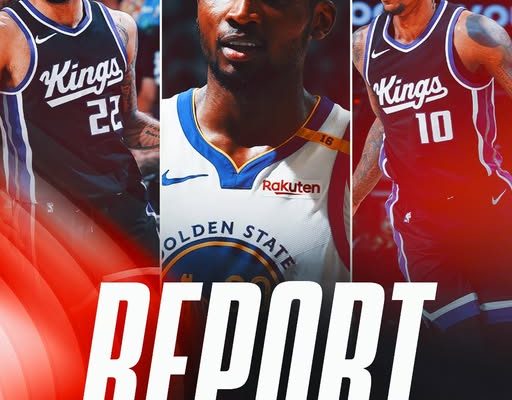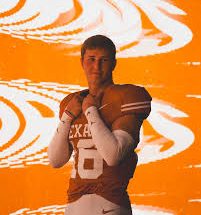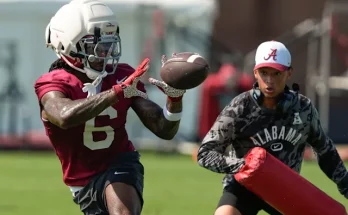The Golden State Warriors continue to make headlines this NBA offseason, not only for their attempts to retool their roster but also for the players they’ve chosen to pass on. In what has become a highly scrutinized situation surrounding former No. 7 overall pick Jonathan Kuminga, the Warriors have reportedly expressed no interest in acquiring DeMar DeRozan or rookie guard Devin Carter in any potential sign-and-trade scenario with the Sacramento Kings. This report has added a fresh twist to the ongoing narrative about the franchise’s direction, its evaluation of talent, and its long-term priorities.
Jonathan Kuminga has been the subject of trade speculation for the better part of the past year. Entering the league as a highly athletic, raw prospect with sky-high upside, Kuminga has made incremental strides each season but has not yet developed into the consistent, two-way star many had hoped he would become. While he averaged career-highs in points, rebounds, and minutes last season, Kuminga remains caught between being a building block for the future and an asset the Warriors might leverage to maximize the remaining prime years of Stephen Curry’s career. This tension has fueled the front office’s complex decision-making over the summer, especially as the team explores ways to return to contention in the Western Conference.
Reports surfaced earlier this offseason that the Sacramento Kings had expressed interest in a potential sign-and-trade for Kuminga, aiming to bolster their wing rotation and add more athleticism and versatility to their roster. However, the sticking point appears to be Golden State’s disinterest in the key players Sacramento is offering. Notably, sources indicate the Warriors have not shown interest in veteran forward DeMar DeRozan or recent draft pick Devin Carter as part of any deal for Kuminga. This revelation has sparked debates among analysts and fans alike, with many questioning whether the Warriors are being too selective—or perhaps too loyal to their long-term vision.
DeMar DeRozan, a six-time All-Star and veteran scorer, would bring immediate offensive firepower and leadership to any locker room. He remains one of the most consistent mid-range scorers in the game and has reinvented himself as a late-game closer and playmaker in recent seasons. On paper, DeRozan could be an ideal complement to Curry and Klay Thompson, providing another offensive weapon who can shoulder the scoring load when the Splash Brothers are off the floor. However, Golden State’s reported lack of interest in DeRozan may stem from concerns about his age, defensive limitations, and stylistic fit. At 35 years old, DeRozan doesn’t align with the Warriors’ apparent desire to get younger and more athletic. Moreover, his preference for isolation-heavy play and mid-range shots could clash with Golden State’s motion-heavy, three-point-centric offense.
Then there’s Devin Carter, the Kings’ promising rookie who turned heads during his college career with his defensive tenacity, explosiveness, and emerging offensive game. Drafted in the first round and considered one of the most NBA-ready perimeter defenders in his class, Carter was seen by many as a steal. However, the Warriors’ disinterest in him may reflect a reluctance to trade a young asset like Kuminga for another unproven player. With Moses Moody, Brandin Podziemski, and other young guards already in the fold, it’s possible the front office sees redundancy in Carter’s skill set or simply doesn’t view him as an upgrade worth sacrificing Kuminga for.
Golden State’s decision to pass on both DeRozan and Carter speaks volumes about how they currently value Kuminga. Despite being floated in trade rumors, the organization may still believe in Kuminga’s long-term potential. He offers elite athleticism, positional versatility, and flashes of defensive brilliance. His offensive game, while still developing, has shown signs of growth—particularly as a cutter and transition scorer. The Warriors may be betting that with more consistent playing time and the right development path, Kuminga could evolve into a legitimate two-way force. If that’s the case, trading him for either an aging star or a rookie would be counterproductive to the team’s dual goals of competing now and preparing for life after Curry.
There’s also a broader philosophical tension at play here. The Warriors are one of the few franchises trying to balance competing in the present while preparing for the future. With Steph Curry still playing at an elite level but entering his late 30s, the team faces pressure to maximize its remaining title window. At the same time, the front office seems reluctant to mortgage all of its future assets for short-term gains—a lesson perhaps learned from the ill-fated trade for Chris Paul. The rejection of DeRozan and Carter may simply reflect a commitment to threading the needle: avoiding rash win-now moves that don’t offer a clear path to another championship, while also resisting the temptation to rebuild prematurely.
Another angle to consider is salary cap management. DeRozan would have commanded a significant contract in a sign-and-trade, one that could have tied up cap space and limited Golden State’s flexibility in the coming years. After already dealing with luxury tax issues and the upcoming extensions for other players, taking on another expensive veteran may not have been financially prudent. In contrast, retaining Kuminga on a rookie-scale deal—or even extending him at a team-friendly rate—offers far more cap control and roster flexibility, something that has become increasingly valuable in the new CBA environment.
The Kings, on their end, may be motivated sellers but lack the kind of assets that Golden State covets. While Sacramento has made strides in recent years—anchored by the duo of De’Aaron Fox and Domantas Sabonis—they are still seeking that extra gear to elevate themselves to true Western Conference contenders. Acquiring someone like Kuminga could give them a dynamic defensive presence and transition threat, but without a suitable package that entices the Warriors, they may have to look elsewhere. That’s a bitter pill for Sacramento, especially if they believed DeRozan or Carter could serve as attractive centerpieces in a deal.
From a strategic standpoint, the Warriors are signaling that they’re not desperate. This front office has always been deliberate, whether it was holding onto their core through down years, drafting well at the back of the lottery, or resisting panic trades. While fans might crave splashy moves, Golden State’s reluctance to pull the trigger on this potential deal could reflect a deeper belief that the right opportunity has yet to materialize. For the Warriors, the right trade would likely involve a younger, defensive-minded wing who can hit threes, fit into their complex offensive schemes, and still grow alongside their emerging talents.
As the offseason progresses, the pressure will continue to mount. The Western Conference has only gotten stronger, with teams like the Denver Nuggets, Minnesota Timberwolves, and Oklahoma City Thunder all improving. The Warriors cannot afford to tread water if they hope to remain competitive. Yet at the same time, making a lateral move—or worse, one that undermines their long-term vision—could derail years of carefully crafted roster building.
What happens next remains uncertain. The Warriors could ultimately decide to keep Kuminga and double down on their developmental plan. Or they could revisit trade talks if another team presents a package that includes a younger star or a versatile role player who better fits their scheme. Until then, the reported disinterest in DeRozan and Carter sends a clear message to the league: Golden State is not looking for a quick fix. They’re looking for the right one. And until it comes along, they’re perfectly willing to wait.



